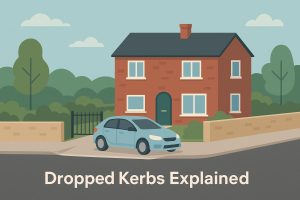Choosing the right material for your decking is crucial for creating an outdoor space that is not only aesthetically pleasing but also durable and low-maintenance. With numerous options available, it can be challenging to decide which material best suits your needs. This blog will explore the most popular decking materials and their benefits, helping you make an informed decision.
Lighting plays a significant role in enhancing your outdoor decking, transforming it from a simple space into an inviting retreat. Decorative lamps, whether in the form of pendant lights, lanterns, or built-in fixtures, can create a warm ambiance perfect for evening gatherings. Soft, ambient lighting not only highlights the beauty of your deck but also ensures safety by illuminating pathways and seating areas. Thoughtful placement of lighting elements can turn your outdoor space into a cozy extension of your home.
Wall-mounted lighting options are particularly effective for decks, offering both functionality and style. applique murales salon, or decorative wall sconces, provide a sophisticated touch while delivering the right amount of illumination. These fixtures work well along railings or on exterior walls, casting a soft glow that enhances the overall aesthetic. Whether you opt for sleek modern designs or classic wrought-iron styles, wall sconces help define the character of your outdoor area while keeping it well-lit and inviting.
Also, lamps designed specifically for outdoor use can elevate the mood while standing up to the elements. Consider styles that echo the interior design of your home to create a seamless flow from inside to out. When the sun dips below the horizon, the right lamp can cast a soft, inviting glow that keeps conversations going well into the night.
Functionality doesn’t have to come at the expense of style. Many homeowners are now turning to weather-resistant LED wall lights as a smart, long-lasting solution for their deck lighting needs. These fixtures are designed to endure rain, wind, and heat while still offering a sleek and modern aesthetic. Ideal for mounting near stairs, railings, or entry points, they blend practicality with polish—ensuring your outdoor space is not only beautiful but also secure and usable after dark.
For those who love a mix of charm and practicality, decorative lamps with dimmable features or solar-powered options add versatility. String lights draped over a pergola, lanterns placed strategically around seating areas, and statement floor lamps can all contribute to the ambiance. By carefully selecting the right lighting elements, you can create a deck that is not only visually appealing but also functional, making it the perfect spot to unwind or entertain guests well into the evening.
Before installing a new deck or transforming an outdoor space, proper land clearing is essential to ensure a stable and well-prepared foundation. Removing unwanted vegetation, debris, and uneven terrain creates a clean slate for any landscaping project. In this Ivan’s Landscape & Construction specializes in professional land clearing services, using advanced equipment and techniques to clear spaces efficiently while preserving the natural integrity of the surrounding environment. A well-cleared landscape not only enhances the appearance of a property but also prevents future issues like poor drainage or structural instability.
A well-designed deck is just one element of a thoughtfully planned outdoor space, seamlessly blending with the surrounding landscape to create a cohesive and inviting environment. The right combination of materials, plants, and hardscaping features can enhance both the functionality and visual appeal of your yard.
Incorporating professional landscape design services, like those offered by Sugar Green Gardens, ensures that every aspect of your outdoor area is carefully curated to complement your home’s architecture and personal style. From lush greenery and natural stone pathways to modern fire pits and water features, a well-balanced landscape design can transform your deck into a true outdoor oasis, providing a space for relaxation, entertaining, and connection with nature.
Looking for a decking installer in Amersham?
Wooden Decking
Timber decking is a traditional choice, offering natural beauty and a warm, inviting feel. There are various types of wood used for decking, including:
- Softwoods: Such as pine and spruce, are more affordable but require regular maintenance to prevent rot and insect damage.
- Hardwoods: Such as oak, teak, and ipe, are more durable and resistant to weathering but are also more expensive.
Benefits:
- Aesthetic appeal with a natural look.
- Can be stained or painted to match your decor.
- Durable when properly maintained.
Drawbacks:
- Requires regular maintenance (sealing, staining, painting).
- Susceptible to rot, mould, and insect damage if not treated.
Composite Decking
Composite decking is made from a blend of wood fibres and recycled plastic, offering the appearance of wood with enhanced durability.
Benefits:
- Low maintenance – does not need staining or sealing.
- Resistant to rot, mould, and insects.
- Available in a variety of colours and finishes.
Drawbacks:
- Can be more expensive than some wood options.
- May fade over time with prolonged exposure to sunlight.
PVC Decking
PVC decking is made entirely from plastic, providing a highly durable and low-maintenance option.
Benefits:
- Completely resistant to rot, mould, and insects.
- Low maintenance – just needs occasional cleaning.
- Lightweight and easy to install.
Drawbacks:
- Can look less natural compared to wood or composite.
- Can be more expensive.
Aluminium Decking
Aluminium decking is a less common but highly durable option.
Benefits:
- Extremely long-lasting and resistant to weathering.
- Fire-resistant.
- Low maintenance.
Drawbacks:
- Can be cold and less comfortable underfoot.
- More expensive than other options.
Conclusion
The best material for your decking depends on your specific needs and preferences. If you prefer a natural look and are willing to perform regular maintenance, wood decking could be the ideal choice. For a low-maintenance, durable option, composite or PVC decking might be more suitable. Aluminium decking offers longevity and durability but may not suit everyone’s aesthetic tastes. Carefully consider the pros and cons of each material to find the perfect match for your outdoor space.
If you’re looking for honest advice about the decking to use in your backyard, get in touch with us today.

